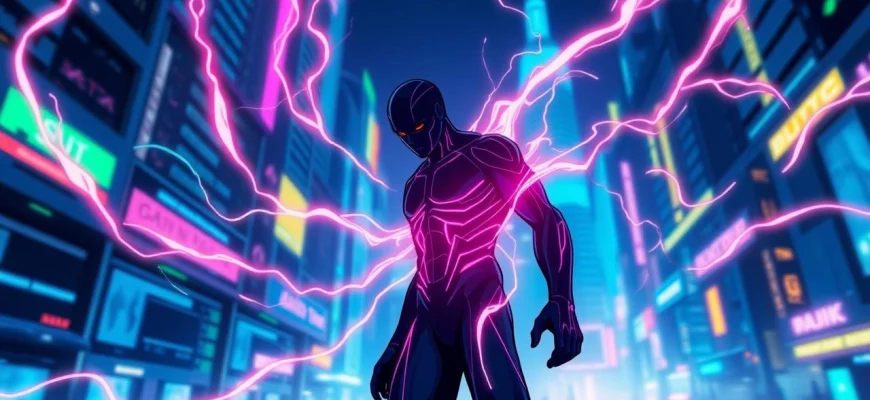If you were captivated by the mind-bending action and sci-fi thrills of 'Lucy' (2014), you're in for a treat. This article explores 10 movies and shows that share similar themes of enhanced human abilities, high-stakes action, and thought-provoking sci-fi concepts. Whether you loved the adrenaline-pumping sequences or the philosophical undertones of 'Lucy,' these recommendations will keep you on the edge of your seat.
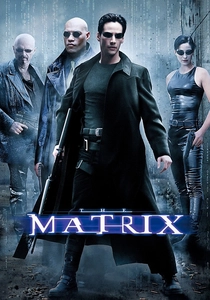
The Matrix (1999)
Description: Like 'Lucy', 'The Matrix' deals with the idea of unlocking human potential beyond perceived limits. Both films feature protagonists who gain extraordinary abilities by understanding and manipulating the fabric of their reality. 'The Matrix' explores this through a simulated reality, while 'Lucy' does so through enhanced brain capacity. Both films also share a cyberpunk aesthetic and philosophical undertones about the nature of existence.
Fact: The iconic 'bullet time' effect was achieved using a rig of still cameras firing in sequence. The Wachowskis originally envisioned 'The Matrix' as a comic book. Keanu Reeves underwent extensive martial arts training for his role as Neo.
 Watch Now
Watch Now 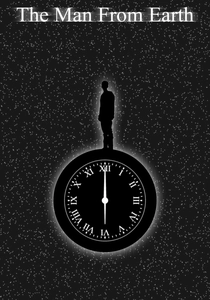
The Man from Earth (2007)
Description: While more dialogue-driven than 'Lucy', 'The Man from Earth' similarly explores the concept of expanded human existence—in this case, a man who has lived for 14,000 years. Both films deal with the implications of extraordinary human capabilities, though 'The Man from Earth' does so through intellectual discourse rather than action. The films share philosophical themes about human evolution, the nature of time, and what it means to be truly 'human' when one transcends normal limitations.
Fact: The film was shot in just one location over two weeks. It was writer Jerome Bixby's final work, completed on his deathbed. The entire budget was only $200,000, yet it became a cult sci-fi classic.
 Watch Now
Watch Now 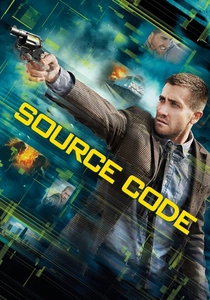
Source Code (2011)
Description: 'Source Code' shares with 'Lucy' a high-concept sci-fi premise involving altered states of consciousness. Both films deal with the manipulation of time and perception, though 'Source Code' focuses on reliving moments to prevent disasters, while 'Lucy' explores expanded awareness. The protagonists in both films undergo profound transformations that challenge their understanding of reality and their own humanity.
Fact: The film was shot in just 25 days. The train set was built on a soundstage, not an actual train. Director Duncan Jones originally wanted to cast Tobey Maguire in the lead role.
 Watch Now
Watch Now 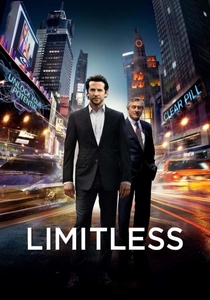
Limitless (2011)
Description: Similar to 'Lucy' (2014), 'Limitless' explores the concept of unlocking the full potential of the human brain. Both films delve into the idea of enhanced cognitive abilities and the consequences that come with them. The protagonist in 'Limitless' gains superhuman intelligence through a drug, much like Lucy's transformation after the drug CPH4 unlocks her brain's full capacity. Both films also touch on themes of power, control, and the ethical dilemmas of human enhancement.
Fact: The film is based on the 2001 novel 'The Dark Fields' by Alan Glynn. Bradley Cooper's character was originally written as a middle-aged man, but the role was adapted to suit Cooper after he expressed interest. The visual effects used to depict the 'enhanced' world were inspired by the works of photographer Richard Misrach.
 Watch Now
Watch Now 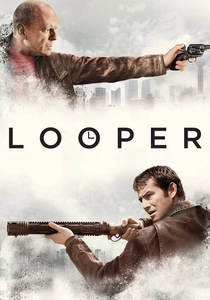
Looper (2012)
Description: 'Looper' and 'Lucy' both deal with the consequences of manipulating time and human potential. While 'Looper' focuses on time travel and its paradoxes, 'Lucy' explores the expansion of consciousness across time. Both films feature protagonists who gain extraordinary abilities that set them apart from normal humanity, leading to existential questions about identity and purpose. The films share a gritty, futuristic aesthetic and themes of evolution beyond human limits.
Fact: Joseph Gordon-Levitt wore prosthetics to resemble a young Bruce Willis. The film's time travel rules were deliberately kept vague to avoid paradox debates. Emily Blunt's farm scenes were shot in Louisiana, standing in for Kansas.
 Watch Now
Watch Now 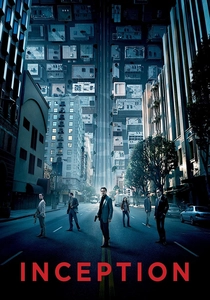
Inception (2010)
Description: 'Inception' and 'Lucy' both explore the power and mysteries of the human mind. While 'Inception' delves into dream manipulation and subconscious layers, 'Lucy' focuses on unlocking the brain's full potential. Both films feature protagonists who gain control over their mental faculties to an extraordinary degree, leading to visually stunning sequences that bend reality. The themes of perception, reality, and the limits of human cognition are central to both.
Fact: The spinning top at the end was not CGI; it was a practical effect. The dream sequences were filmed in six different countries. Hans Zimmer's score includes a slowed-down version of Edith Piaf's 'Non, Je Ne Regrette Rien'.
 Watch Now
Watch Now 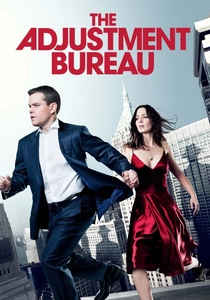
The Adjustment Bureau (2011)
Description: Both 'The Adjustment Bureau' and 'Lucy' involve protagonists who gain insight into forces beyond normal human perception. While 'Lucy' achieves this through enhanced brain capacity, 'The Adjustment Bureau' deals with discovering a hidden organization controlling fate. Both films blend sci-fi with thriller elements and explore themes of free will versus predestination, though from different angles—neurological in 'Lucy' and metaphysical in 'The Adjustment Bureau'.
Fact: The film is loosely based on a Philip K. Dick short story. Matt Damon did most of his own running scenes. The iconic hats were inspired by 1960s fashion and the Mad Men era.
 Watch Now
Watch Now 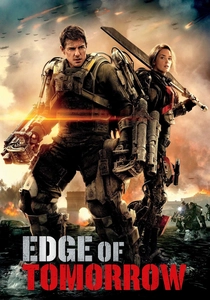
Edge of Tomorrow (2014)
Description: Like 'Lucy', 'Edge of Tomorrow' features a protagonist who undergoes a radical transformation in capabilities. While Lucy gains mental powers, Tom Cruise's character gains the ability to relive the same day, effectively 'evolving' through experience. Both films show ordinary humans becoming superhuman through extraordinary circumstances, with strong female counterparts (Scarlett Johansson in 'Lucy', Emily Blunt in 'Edge of Tomorrow') who are already enhanced. The films share themes of human evolution and survival against overwhelming odds.
Fact: The film is based on the Japanese light novel 'All You Need Is Kill'. The exosuits weighed about 85 pounds each. The beach battle took a month to film and required 11 cameras running simultaneously.
 Watch Now
Watch Now 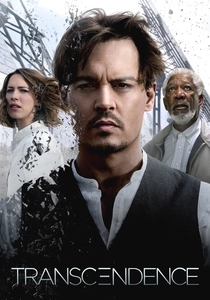
Transcendence (2014)
Description: 'Transcendence' shares with 'Lucy' the theme of human evolution beyond physical limitations through technology. While 'Lucy' focuses on brain capacity, 'Transcendence' explores the merging of human consciousness with artificial intelligence. Both films question the boundaries of human existence and the potential for transcendence, albeit through different means—biological enhancement in 'Lucy' and digital consciousness in 'Transcendence'.
Fact: This was the directorial debut of Wally Pfister, the longtime cinematographer for Christopher Nolan. Johnny Depp's character was inspired by real-life futurist Ray Kurzweil. The film's production was kept secret under the codename 'Project Summer'.
 Watch Now
Watch Now 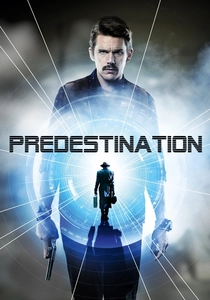
Predestination (2014)
Description: 'Predestination' and 'Lucy' both deal with the manipulation of time and consciousness, though in very different ways. While 'Lucy' expands consciousness across time and space, 'Predestination' explores temporal paradoxes and identity. Both films feature protagonists who transcend normal human limitations, leading to mind-bending revelations about the nature of existence. The films share a philosophical depth and unconventional narrative structure that challenges viewers' perceptions.
Fact: The film is based on Robert A. Heinlein's short story 'All You Zombies'. Sarah Snook plays both male and female versions of the same character. The entire film was shot in just 28 days in Melbourne, Australia.
 Watch Now
Watch Now 
